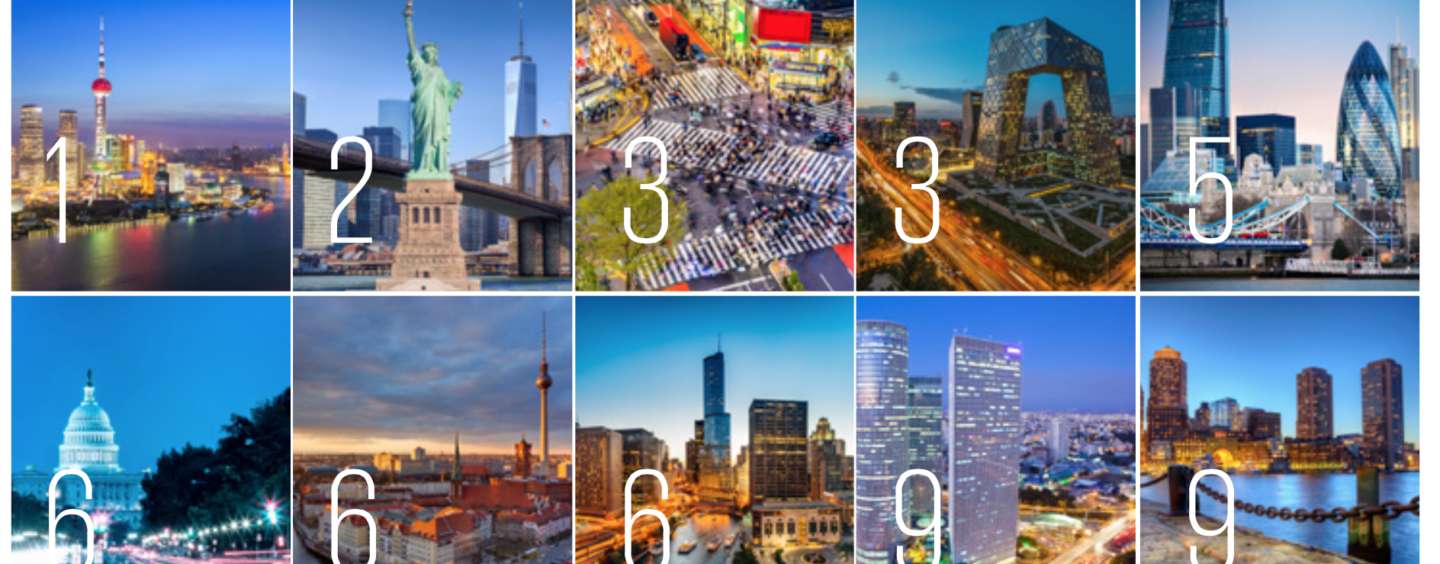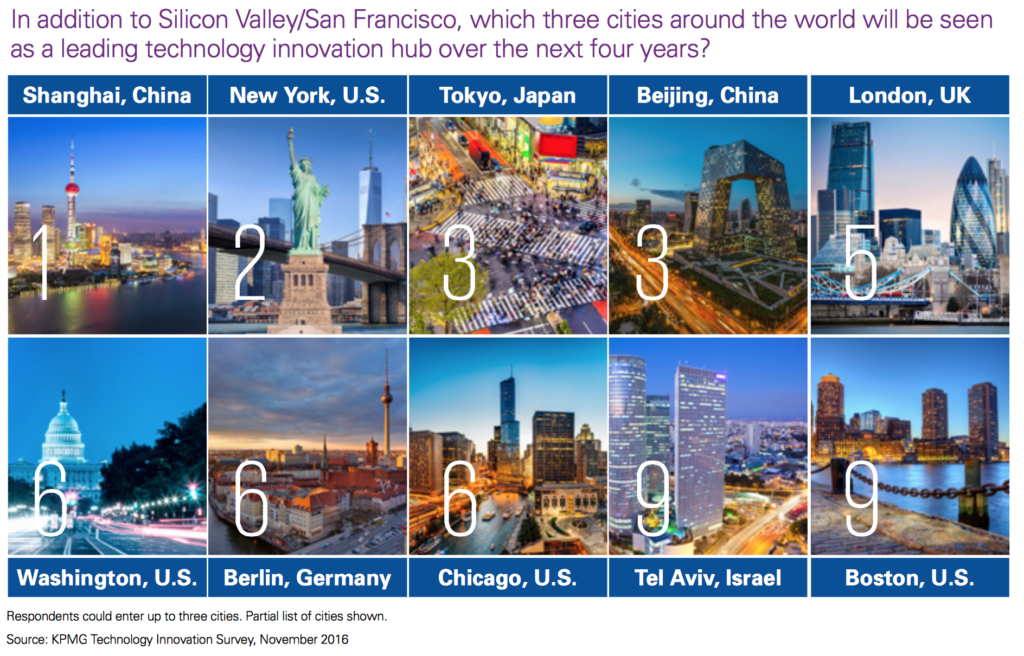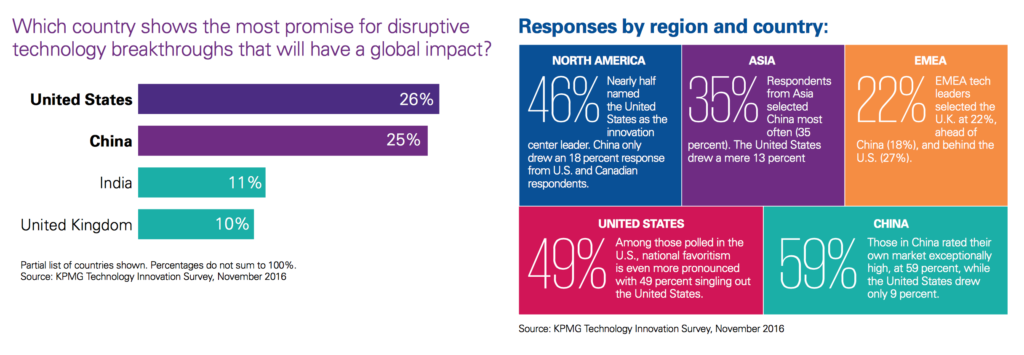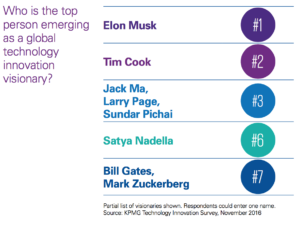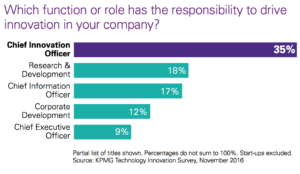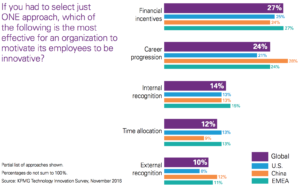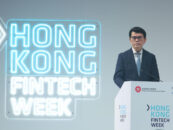KPMG’s 2017 study on global technology innovation hubs found that China is quickly catching up to the US in terms of its potential for disruptive breakthroughs. In a survey conducted by KPMG among global tech innovation leaders, 23 percent of them indicated that China shows the most promise for disruptive technology breakthroughs that will deliver the most global impact. The US is still the biggest force in innovation, with 26 percent of leaders indicating as such.
KPMG said this trend boils down to its shift from manufacturing to services. Innovation is led by its large mobile and digitally savvy consumer and business base, with visionary entrepreneurial leaders like Jack Ma of Alibaba leading the pack. Baidu, Alibaba, Tencent and others, who are all tech titans in their own right, are expanding overseas, said KPMG, and are looking to buy up and invest in leading start-ups the world over.
India is also faring rather well, placing third globally in KPMG’s survey, backed by its mobile first generation and its reliance on local business models. It is also home to nine start-ups valued at more than $1 billion.
Shanghai was chosen as the number one city that would become a leading innovation hub in the next four years, with a 26 percent showing over the 21 percent for the capital city Beijing. Shanghai’s showing increased from 17 percent from 2016. Tokyo also ranked high in this years survey at 21 percent, as the Tokyo government is investing US$330 million over hte next five years to produce hydrogen and fuel cell-powered vehicles in time for the 2020 Summer Olympics.
Jack Ma, founder of Alibaba, also ranked number three globally, tying with Larry Page and Sundar Pichai as the top person coming up as a global technology innovation visionary. About 8 percent of global respondents picked Ma. His influence is stronger in the region with 12 percent of respondents in Asia and 20 percent in China choosing Ma as a leading innovator.
KPMG’s survey found than 35 percent of global techindustry leaders believe that the Chief Innovation Officer role is best suited to lead the innovation strategy. This finding underscores the rise of the Chief Innovation Officer as a key member of the chief executive suite and a powerful leader in formulating strategy, as well as keeping innovation central to the corporate culture.
Patents were also ranked by 35 percent of survey respondents as the top metric as a measure of innovation globally, up from last year’s results at 19 percent. Brand image ranks second at 33 percent, compared with 20 percent last year.
In China, 66 percent of survey respondents rate that the ability to drive customer adoption was the most pressing issue in enabling technology innovation. Globally, 58 percent of respondents consider availability of talent to be the biggest factor, said KPMG.
The Chinese also consider career progression as the one approach for an organisation to motivate its employees to be innovative, with 28 percent indicating as such. China also believes that innovation is nurtured in the Information Technology and Research & Development arms of an organisation, at 36 percent and 32 percent respectively.
Overall, Asia holds much prospects in the startup scene globally. In Korea, for instance, the government is supporting start-ups by creating a hub in Pankyo Techno Valley, south of Seoul. Start-ups also have close access to domestic and esport markets via large Korean companies who need new technologies development.
In Singapore, 210 fintech firms have also commenced operations in the last two years. The city state is the largest producer of startups in Southeast Asia. In 2015 alone, total funding for startups exceeded US$1 billion with the biggest rounds of funding for ride-hailing platform Grab and Lazada, an e-commerce online shopping company. It is also striving to be the world’s first Smart Nation, having already deployed smart sensors to analyse traffic congestion and crowd density, said KPMG.




